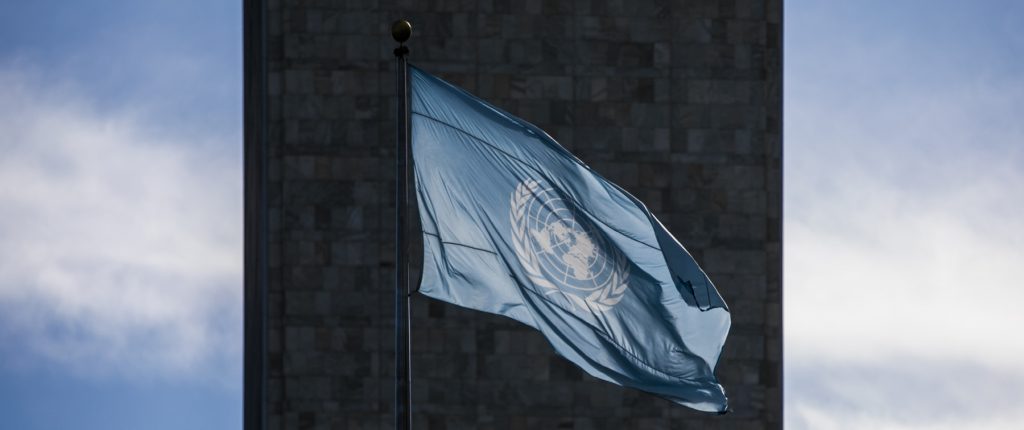HISTORY OF THE UN 26 JUNE 1945
THE IDEA TO ESTABLISH AN ORGANISATION OF UNITED NATIONS OWES ITS ORIGINS TO THE SECOND WORLD WAR (1939-45) AND THE PERIOD PRIOR TO THIS.
The aggressive policy of National Socialist Germany was a fundamental reason for the failure of the League of Nations. When Germany, Italy and Japan reached the peak of their military success, President Franklin D. Roosevelt and UK Prime Minister Winston Churchill agreed on specific framework conditions for future common foreign policy principles, peacekeeping measures and the creation of a permanent system of general security in the Atlantic Charter of 14 August 1941. The ideas for a new international order they agreed on were a sign of hope in the darkest hours of the war.
THE IDEA OF THE „UNITED NATIONS“
At the Yalta Conference in February 1945, Roosevelt, Churchill and the Soviet head of state Josef Stalin reached agreement on the future of the almost defeated Germany as well as the basic outlines of the post-war order. Less known, but all the more important the „big three“ also reached agreement on the establishment of the United Nations.
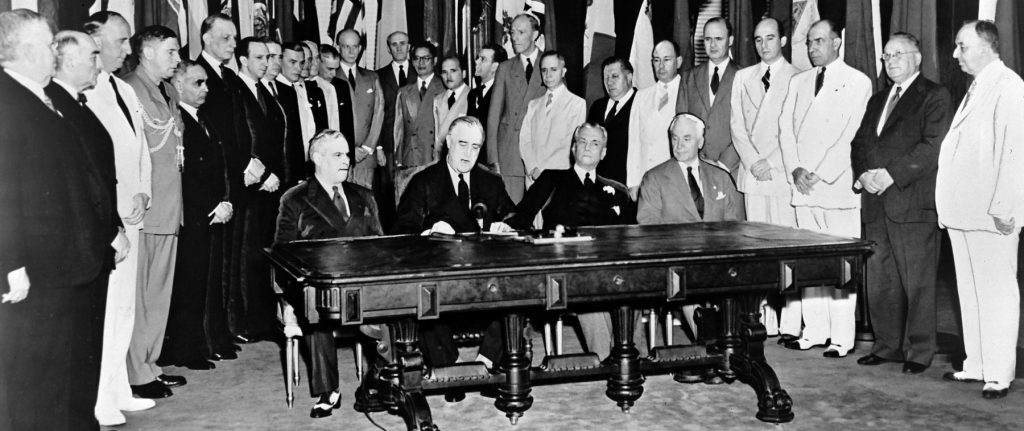
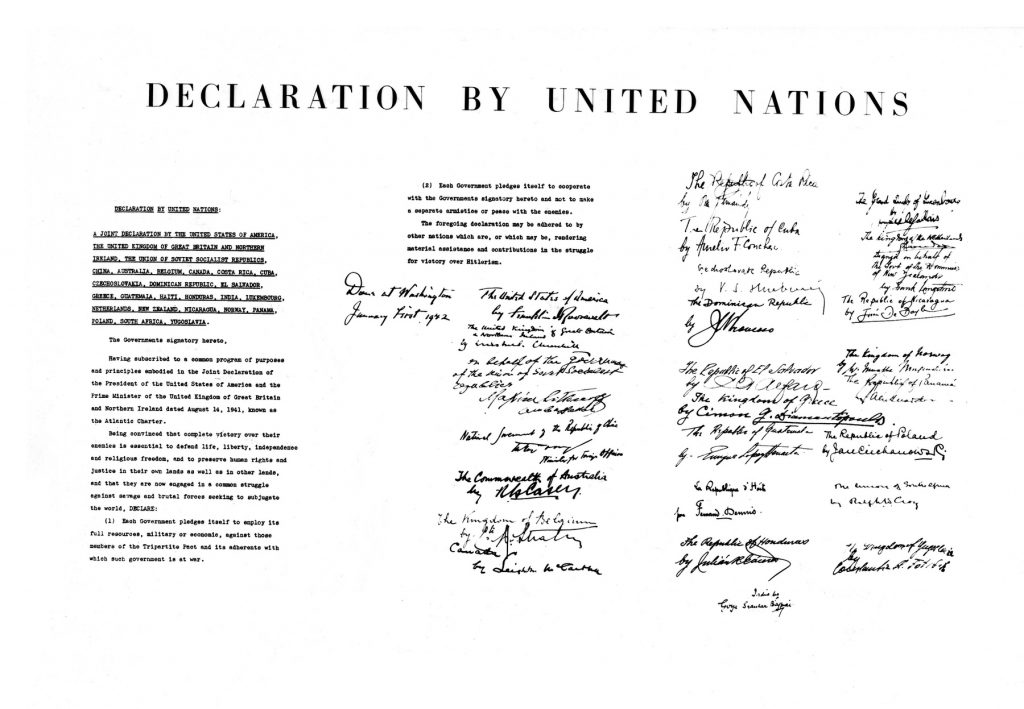
FOUR MONTHS LATER – ON 25 JUNE 1945 – 50 STATES UNANIMOUSLY ADOPTED THE CHARTER OF THE UNITED NATIONS COMPRISING 111 ARTICLES IN SAN FRANCISCO, THEREBY AFFIRMING THEIR COMMITMENT TO MAINTAINING WORLD PEACE AND SECURITY, THE EQUAL RIGHTS OF MEN AND WOMEN AND OF NATIONS LARGE AND SMALL.
The UN Charter entered into force on 24 October 1945.
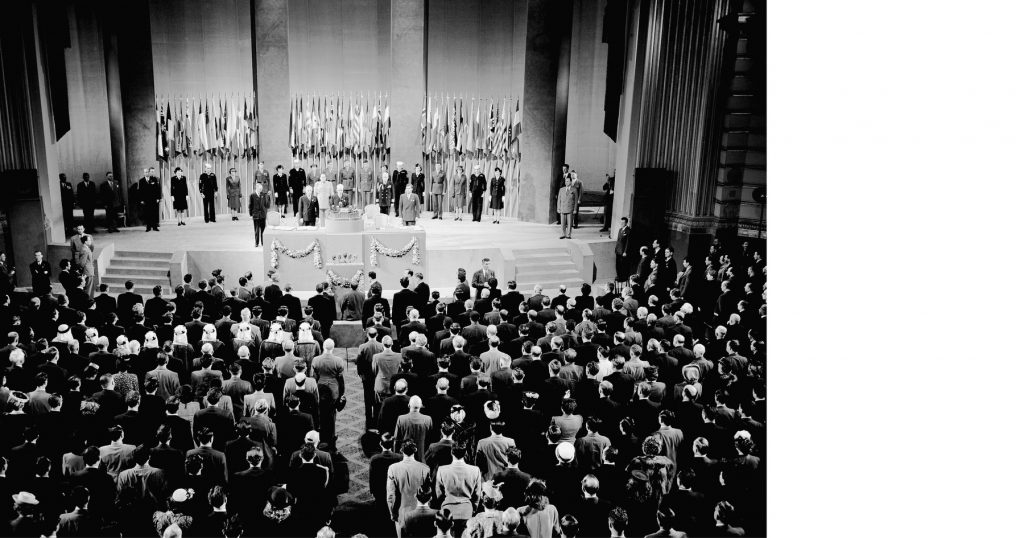
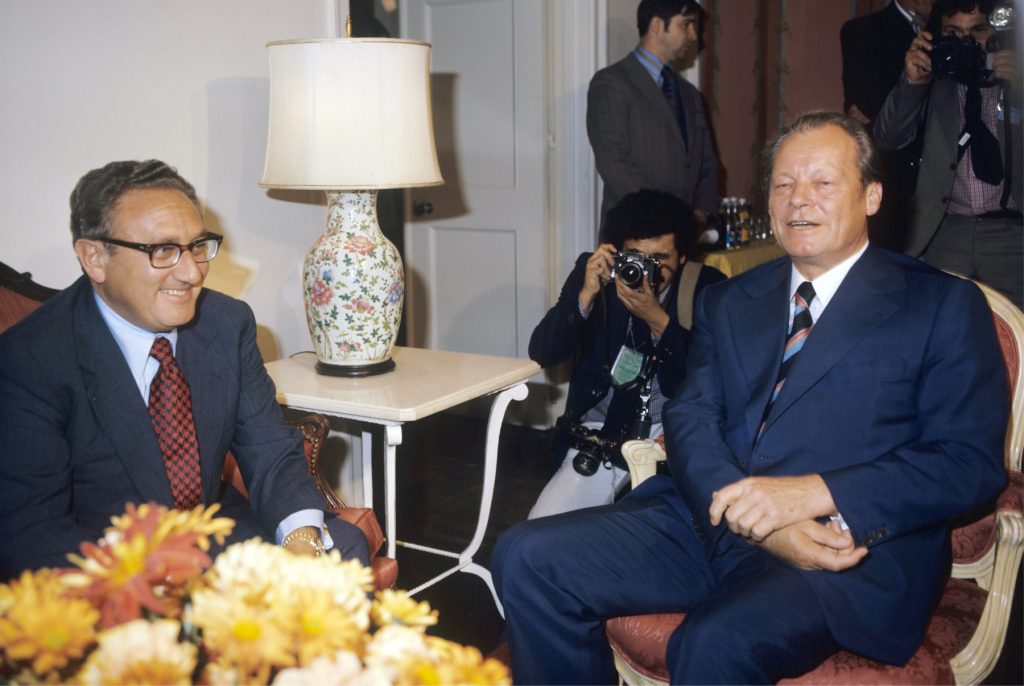
IN JUNE 1973, THE GERMAN DEMOCRATIC REPUBLIC (GDR) AND THE FEDERAL REPUBLIC OF GERMANY SUBMITTED APPLICATIONS TO BECOME THE UN’S 133RD AND 134TH MEMBERS RESPECTIVELY.
On the recommendation of the UN Security Council, the admission of the Federal Republic of Germany and the GDR as members was adopted by the UN General Assembly on 18 September 1973. Seventeen years later, following German unification in 1990, the Federal Republic of Germany was represented as a single, unified country in the UN.

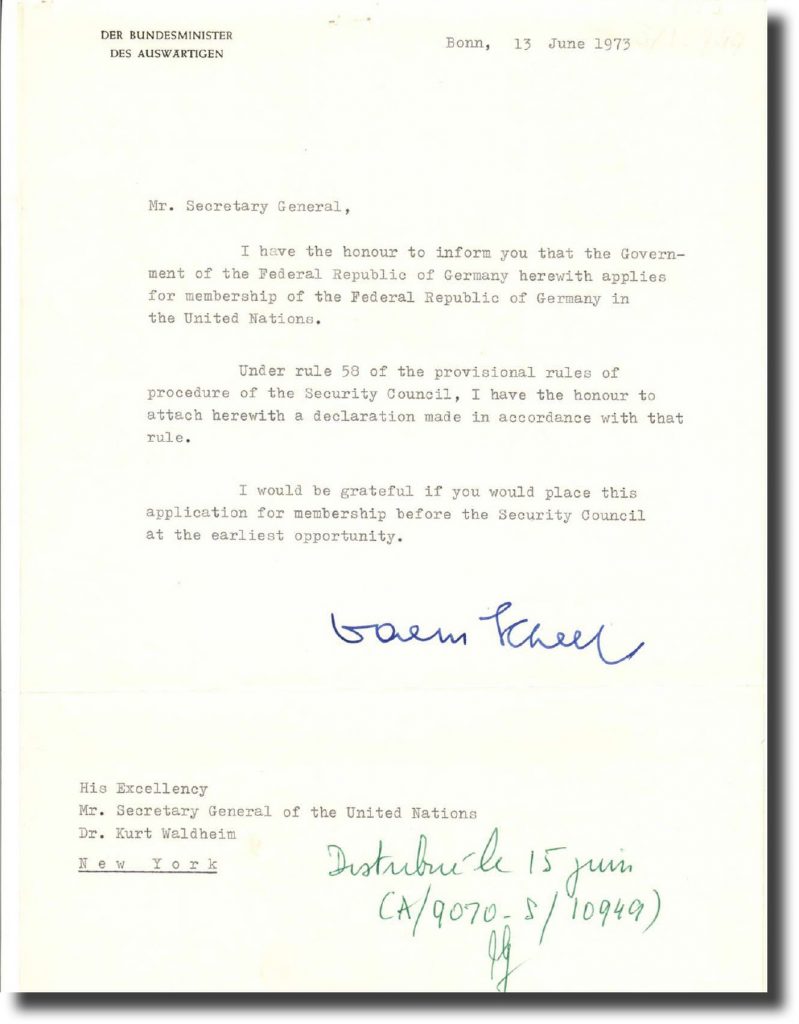
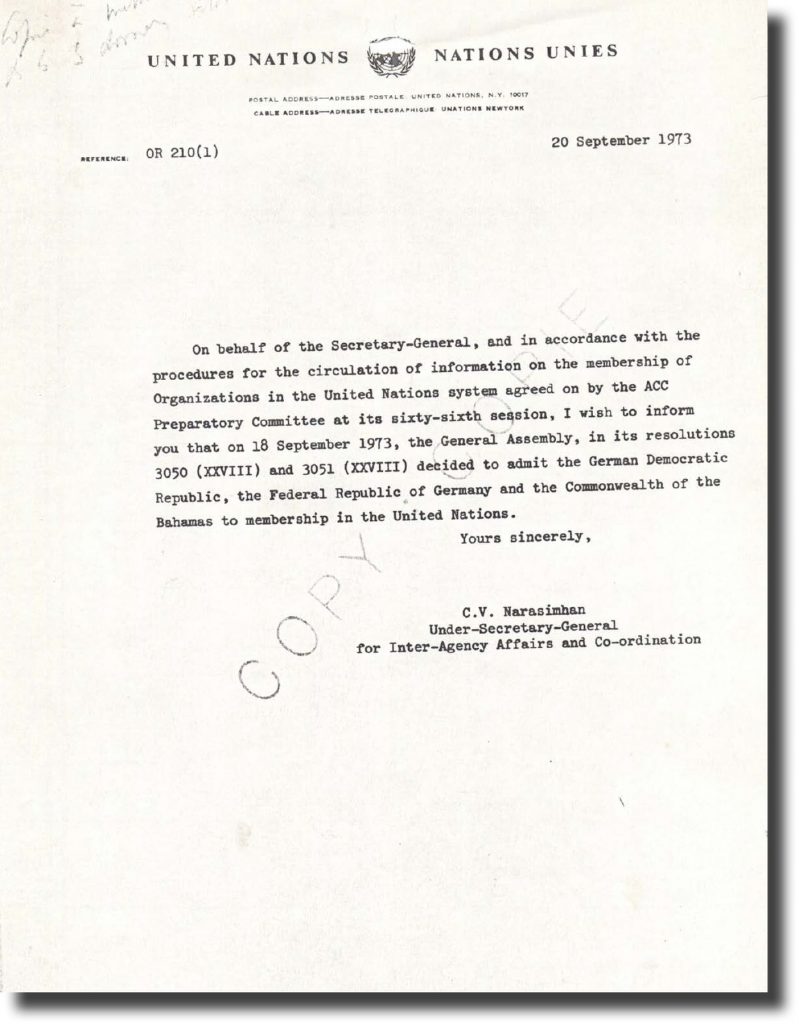
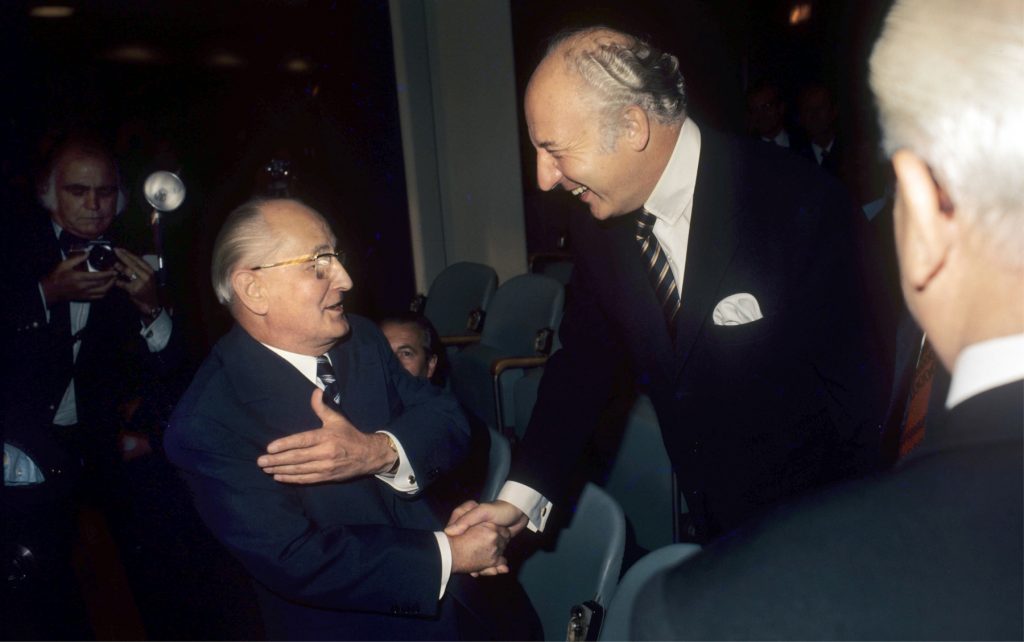
THE UNITED NATIONS TODAY 26 JUNE 2020
KEY OBJECTIVES OF THE UNITED NATIONS
» Maintaining international peace and security
» The peaceful settlement of disputes
» Refraining from the use of force
» Respect for the principle of sovereign equality of all states
» Developing friendly relations to maintain peace
» Promoting international cooperation to solve international problems of an economic, social, cultural or humanitarian character
» Respect for human rights and for fundamental freedoms for all without distinction as to race, sex, language or religion
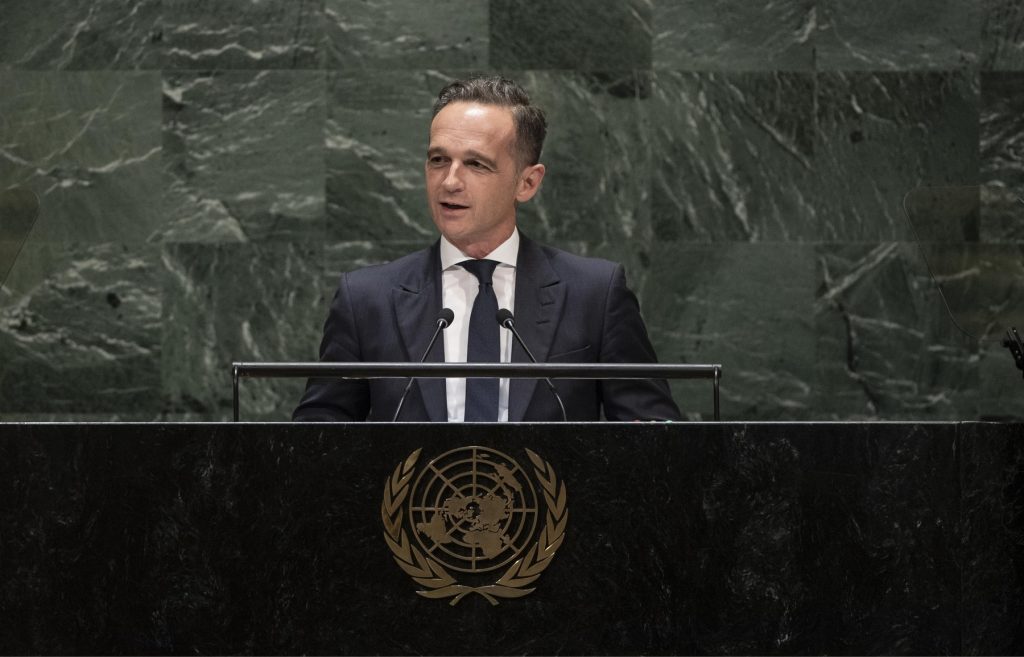
GERMANY’S INVOLVEMENT IN THE UNITED NATIONS HAS GROWN STEADILY.
Over 30 UN institutions are now based in Germany, particularly in Bonn. Germany is involved in a large number of UN bodies, institutions and peace missions and is also the fourth-largest contributor to the regular UN budget after the US, China and Japan.
On 8 June 2018, the Federal Republic of Germany was elected to the UN Security Council for the sixth time as a non-permanent member.
Membership of the Security Council extends Germany’s foreign policy outreach. Germany contributes to solve international crises at a central position and to prevent them.
GERMANY IS ALSO WORKING INTENSIVELY TO FOSTER DISARMAMENT AND NON-PROLIFERATION, TO STRENGTHEN THE AGENDA OF WOMEN, PEACE AND SECURITY AND IS PLACING A FOCUS ON HUMAN RIGHTS, CLIMATE AND SECURITY, INTERNATIONAL HUMANITARIAN LAW AND HUMANITARIAN SPACE.
SINCE 2011, 193 STATES, OR ALMOST ALL OF THE WORLD’S COUNTRIES, HAVE BEEN MEMBERS OF THE UNITED NATIONS.
The UN is the only forum in which all states meet on an equal footing to find common solutions and reach decisions.
The founding document of the UN, the UN Charter, sets out the objectives and principles of the UN, as well as the six principal organs of the organisation and specifies their composition and competencies.
The principal organs of the UN are the General Assembly, the Economic and Social Council (ECOSOC), the Secretariat, the International Court of Justice and the Security Council. In addition to the adoption of non-binding resolutions by the UN General Assembly, the UN Security Council may take decisions that are binding for all its members under international law.
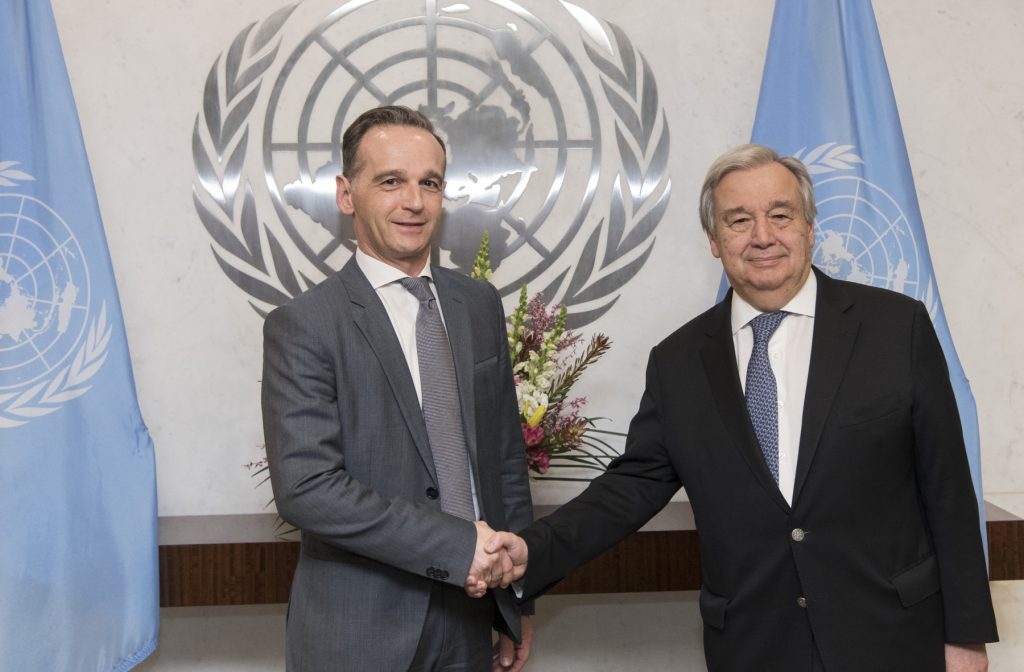
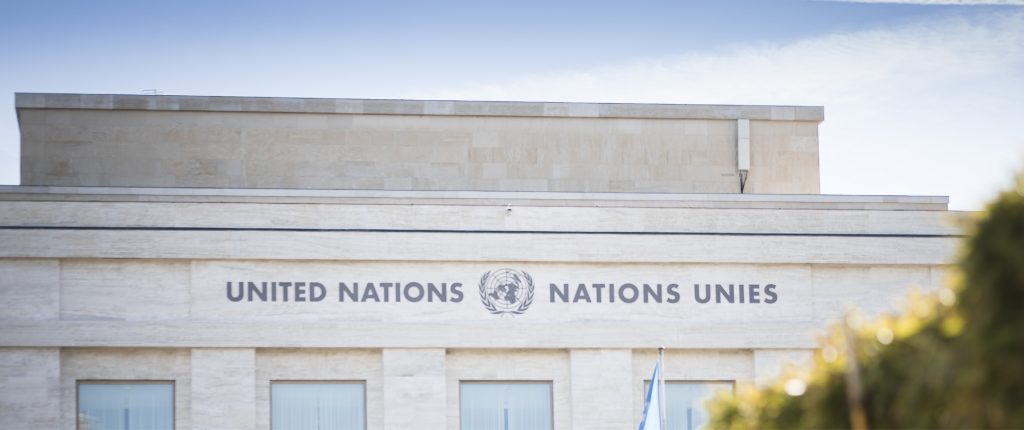
THE FUTURE OF THE UNITED NATIONS 26 JUNE 2045
A KEY PRIORITY OF THE GERMAN GOVERNMENT IS THE REFORM OF THE UN SECURITY COUNCIL.
Such reform is intended to ensure that the Security Council reflects the geopolitical realities of the 21st century more accurately. The UN Security Council’s legitimacy and authority are at risk as long as important regions and major contributors are not adequately represented. Germany there- fore actively supports this reform along with its G4 partners Brazil, India and Japan. Reform endeavours are also underway in other areas.
UN Secretary-General António Guterres intends to implement a comprehensive reform agenda to make the UN fit for the challenges of the future. He has defined priorities that Germany supports. In addition to the coherent implementation of the 2030 Agenda, Guterres intends to strengthen conflict prevention and reorganise the UN.
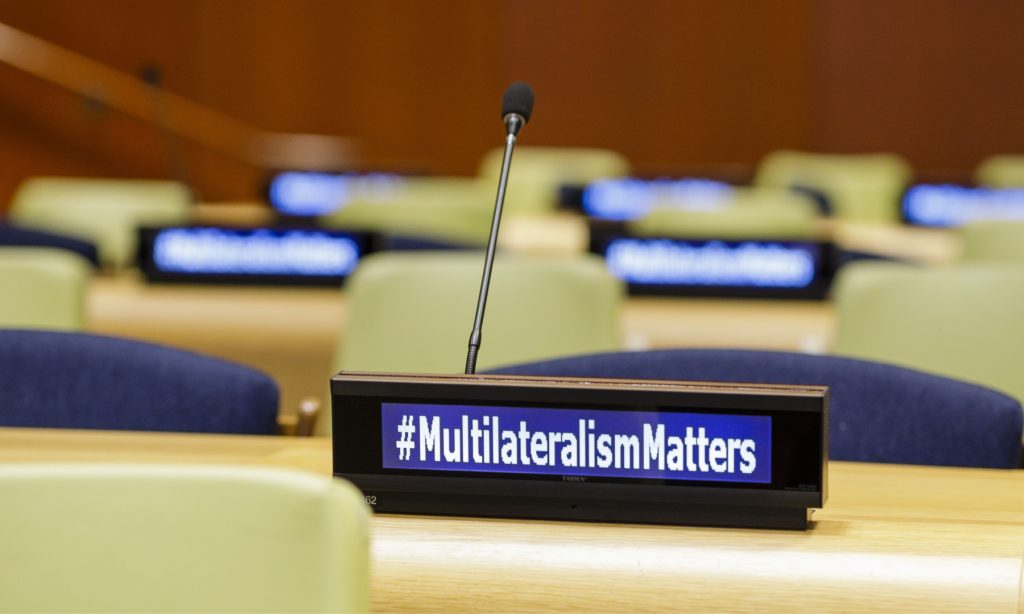
A KEY ISSUE FOR GERMANY IS A FUTURE ROOTED IN MULTILATERALISM – “JOIN TOGETHER” NOT “MY COUNTRY FIRST”.
Multilateralism as the core of international cooperation is and will become more important than ever before with a view to overcoming current and future global political challenges. The Alliance for Multilateralism established by Foreign Minister Maas, a network of countries that are working together in a wide range of policy areas, is intended to contribute to the preservation and further development of the rules-based order.
THE AIM IS TO CONTINUE TO STRENGTHEN THE VALUES OF THE UN IN THE FUTURE AND TO CREATE A WORLD FOR FUTURE GENERATIONS IN WHICH WORLD PEACE AND INTERNATIONAL SECURITY FOR ALL NATIONS ACROSS BORDERS IS NOT A UTOPIA BUT A REALITY.
